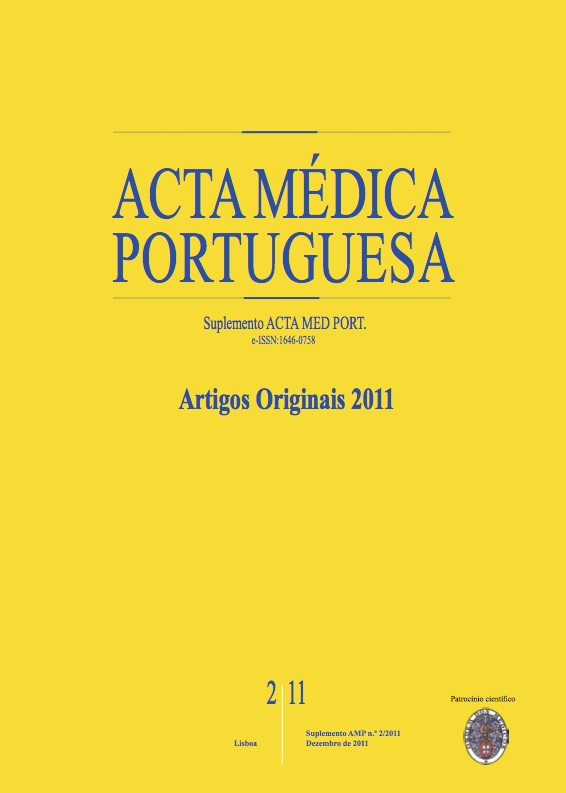Adesão à HAART, qualidade de vida e sintomat ologia psicopat ológica em doentes infectados pelo VIH/SIDA.
DOI:
https://doi.org/10.20344/amp.1438Resumo
Patient adherence to highly active antiretroviral therapy (HAART) is essential to treatment success, and improved quality of life (QoL) and mental health have been recognized as important outcomes from the HIV treatment. However, very few published research studies have related these domains to HAART adherence. The purpose of this study was to examine the association between adherence to HAART, QoL and psychopathological symptoms in a sample of HIV-infected patients, and to identify demographic, clinical and psychological predictors of non-adherence.A cross-sectional study was conducted in the main services/departments of infectious diseases of Portuguese Hospitals. The sample consisted of 762 HIV-infected patients. The assessment protocol included the Portuguese versions of the WHOQOLHIV-Bref and the Brief Symptom Inventory (BSI). Results: Of the 762 patients, 133 (17.5%) reported not to fully adhere to HIV medication. Non-adherent patients reported significantly lower QoL. Follow-up tests reported significant differences in four of six domains, with the exception of Social relationships and Spirituality domains. Regarding psychopathological symptoms, there was also a significant effect. Follow-up tests reported a significant difference only on psychoticism. In multivariate logistic regression, younger individuals, people diagnosed and on medication for longer time, with lower CD4+ T cell count, on symptomatic/AIDS stage and with higher scores on interpersonal sensitivity, anxiety and psychoticism were more likely to be non-adherents.Future studies assessing HAART adherence should consider the interplay of demographic and HIV-related variables, as well as psychological status. Also, it may help to elicit those people who are at risk for non-adherence, as well as poorer quality of life and mental health.Downloads
Downloads
Como Citar
Edição
Secção
Licença
Todos os artigos publicados na AMP são de acesso aberto e cumprem os requisitos das agências de financiamento ou instituições académicas. Relativamente à utilização por terceiros a AMP rege-se pelos termos da licença Creative Commons ‘Atribuição – Uso Não-Comercial – (CC-BY-NC)’.
É da responsabilidade do autor obter permissão para reproduzir figuras, tabelas, etc., de outras publicações. Após a aceitação de um artigo, os autores serão convidados a preencher uma “Declaração de Responsabilidade Autoral e Partilha de Direitos de Autor “(http://www.actamedicaportuguesa.com/info/AMP-NormasPublicacao.pdf) e a “Declaração de Potenciais Conflitos de Interesse” (http://www.icmje.org/conflicts-of-interest) do ICMJE. Será enviado um e-mail ao autor correspondente, confirmando a receção do manuscrito.
Após a publicação, os autores ficam autorizados a disponibilizar os seus artigos em repositórios das suas instituições de origem, desde que mencionem sempre onde foram publicados e de acordo com a licença Creative Commons









